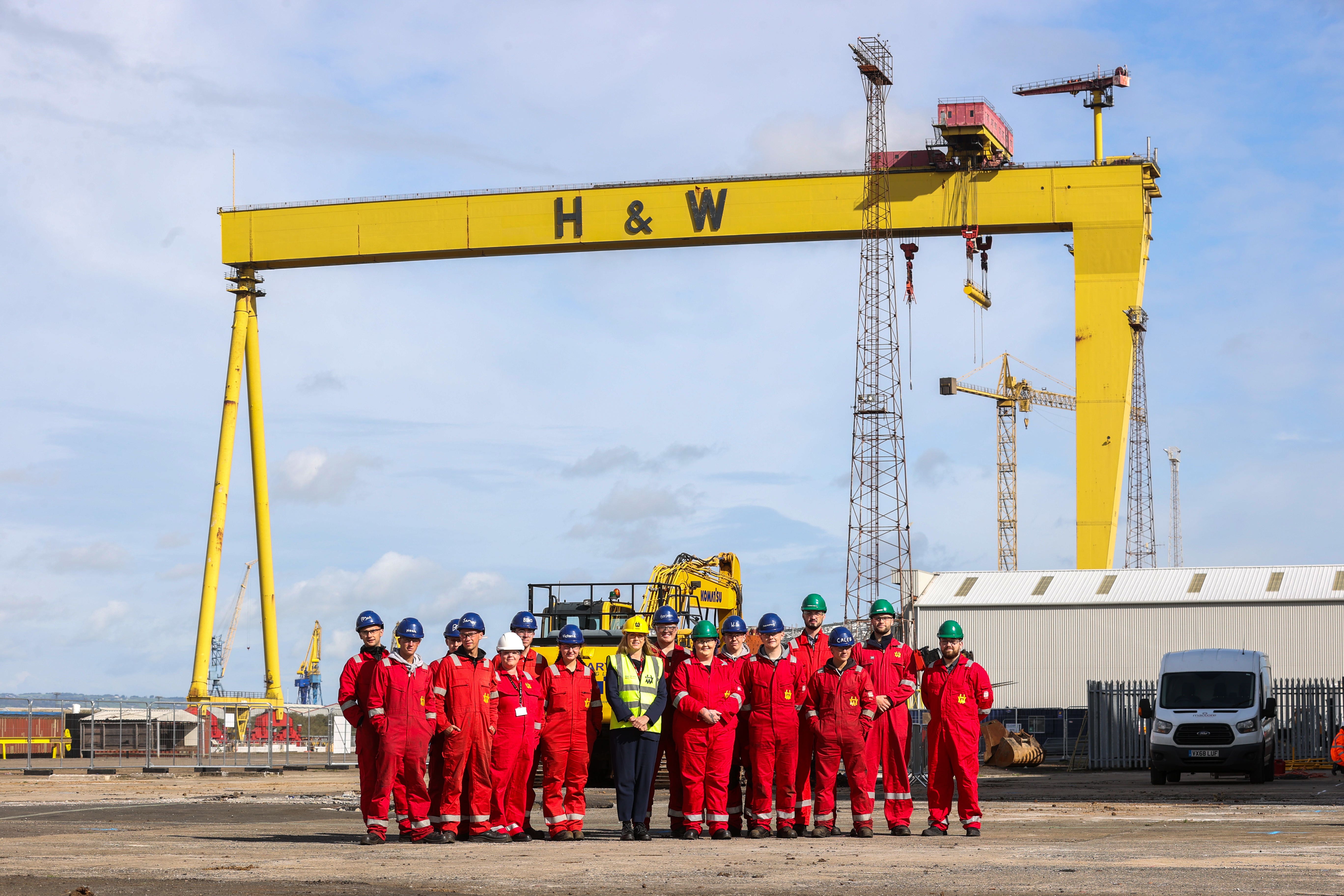Minister says no decision has been made on Harland and Wolff financial support
The firm has applied to a government scheme for support in building ships for the Royal Fleet Auxiliary.

The minister for defence procurement has insisted that no decision has been made around financial support for Harland and Wolff.
Last week, a report in The Times newspaper suggested Chancellor Jeremy Hunt is expected to block a key support package application by the firm, amid an “intense Government row”.
Harland and Wolff group chief executive John Wood then insisted their application “has not been rejected”, and “continues to be a work in progress”.
The firm received a major boon when the Team Resolute Consortium it belongs to won the bid to deliver three fleet solid support (FSS) ships for the Royal Fleet Auxiliary.
No decision has been made on financial support for the company.
It has applied to the Government’s Export Development Guarantee scheme for support.
The scheme usually covered up to 80% of the risk to lenders on loans of up to £500 million. Harland and Wolff is in its application asking for a 100% guarantee.
The historic Belfast shipyard which built the Titanic has had a challenging recent past and faced down closure in 2019 when it was bought by InfraStrata.
Appearing at the Northern Ireland Affairs Committee on Wednesday, the minister for defence procurement at the Ministry of Defence James Cartlidge was asked about the reports.
He told MPs there is a limit to what he can say, and could not comment on commercially sensitive matters adding: “No decision has been made on financial support for the company”.
Committee chair Sir Robert Buckland pressed Mr Cartlidge on a timescale for when issues may be resolved.
The minister responded: “I’m afraid I can’t say any more than no decision has been made yet.”
Pressed further he added: “FSS remains a top priority naval procurement for the Ministry of Defence, we are committed to delivering it and that will ensure continued investment in shipyards in the UK including in Belfast.”
SDLP MP Claire Hanna emphasised the role of the trade unions in supporting workers to fight for the survival of Harland and Wolff in 2019, and added the contract represents jobs, apprenticeships and wider potential of Belfast.
DUP MP Carla Lockhart emphasised the importance of the industry to Belfast and to Northern Ireland, adding intervention is needed to help the company to build back stronger, adding this “cannot be stressed enough”.
The committee is currently carrying out an inquiry into defence spending in Northern Ireland.
It also heard that defence spending per person in Northern Ireland is just £190, compared with £5,930 in south-west England and £780 in Wales.
Sir Robert said there were historic security reasons for that, but things have moved “a long way from that era”, and asked what approach the Government takes to improve those figures.
Mr Cartlidge said the latest defence spending figures for Northern Ireland were £186 million for 2022/23, an increase of 20% on the previous year.
He hailed the Thales missile plant in Belfast as a “very positive and significant example” of Northern Ireland gaining from the MoD spending effectively.
“That demonstrates in a very relevant way the importance of Northern Ireland to the development of our military capability,” he said, referencing the war in Ukraine.
“We don’t just have to have offensive capability, we need to be able to defend our armed forces, and I think it’s very positive to see Belfast playing its part in helping develop some of that technology.
“I’ve remarked on how proud the country should be of what has been achieved from that plant in delivering extraordinary capability into Ukraine.
“As has been confirmed publicly, we provided NLAW (anti-tank weapons) to Ukraine before the invasion, and everyone knows the role it played when that first column came towards Kyiv at the start of the invasion. One can speculate therefore on their military role as being incredibly important.
“These are highly capable weapons produced from local hands in Northern Ireland so I think it’s a very important story and we’re keen to work with Thales to do more of that, to ensure they’re supporting local skills but also taking advantage of the international market.”
Bookmark popover
Removed from bookmarks